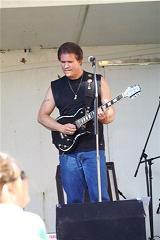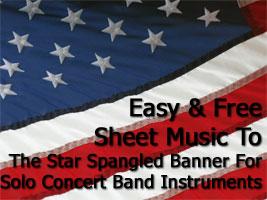 You may not know Jeff Arnold by name, but if you have ever bought a guitar book from Hal Leonard you definitely know his work. As a high ranking editor within the guitar department, Jeff oversees the development and release of dozens of books each year, many of which we are all familiar with. Aside from his work at Hal Leonard, Jeff is an accomplished performer who has been a mainstay on the Milwaukee music scene for decades.
You may not know Jeff Arnold by name, but if you have ever bought a guitar book from Hal Leonard you definitely know his work. As a high ranking editor within the guitar department, Jeff oversees the development and release of dozens of books each year, many of which we are all familiar with. Aside from his work at Hal Leonard, Jeff is an accomplished performer who has been a mainstay on the Milwaukee music scene for decades.
 Jeff sat down with us recently to talk about how he made the move from performer to editor, and what role he sees Hal Leonard playing in modern music education.
Â
MW: You started off your musical career as a performer and teacher. How did you make the move to publishing, and was it a tough transition?
JA: I started taking guitar lessons at the age of nine and continued for the next twelve years, which includes my years at the Wisconsin Conservatory of Music. I also was an alto sax player through high school. My private lessons and schooling included a lot of theory, ear training, and reading. Being in the school band, and even choir, was very helpful too. Both teaching and playing in local bands started in my teens.
One of my former students, Jeff Schroedl, did a sample transcription for Cherry Lane music for which they hired him. He eventually went to work for Hal Leonard and contacted me about doing freelance work. After studying the company style manual, and asking a lot of questions, I began transcribing, arranging, proofreading, and editing various guitar books in-between playing and teaching.
When an editor position opened up, I applied and was hired. There was, and still is, a lot to learn on the publishing end, but my years of training and experience paid off. I still play in a local band on the weekends.
MW: Can you talk a bit about the process that a new book takes from the initial idea to final publication?
JA: I’ll give you my role in the process as an editor: Once a project is conceived, a PCR (product clearance request) is drawn up outlining projected costs, size, legal issues, etc. The PCR is then given to an editor to assign to a transcriber or arranger, depending on the book. The editor assembles recordings, and other source that would help the arranger.
When the manuscripts come back, the editor checks over every aspect and makes red marks to indicate changes. The edited manuscripts are then sent to an engraver. When the engravings come back, the editor assigns the project to a proof reader. The proof reader’s task is to compare the edited manuscript with the newly engraved version. The proofer makes his/her red marks on the engraved proof. The proof is then sent in for corrections. After this stage, the editor usually does any additional proofreading until the music is considered clean.
I also put together an art request form outlining the concept of the book for the art department. This request also contains information needed on the front and back covers, pagination, series logos, etc. A business affairs person checks copyright notices and other legal issues, and a production person sets up all the information needed to send the book to print.
MW: What are the different types of books found within the Hal Leonard guitar catalogue?
JA: I’m in charge of the song book area which includes: easy guitar, fingerstyle, classical, EZ rhythm, and author arranged books. I also oversee all the Real Book projects.
The most popular series is the Guitar Recorded Versions (GRV), where guitar parts and vocals are transcribed note for note from recordings. Guitar Play Along is another popular series. The concept is taking a GRV and arranging it for one guitar. The play along series comes with a demonstration CD.
Other series include: Signature Licks, Guitar Chord Songbook, various method books, and countless instructional DVDs, just to name a few. Hal Leonard just started a website called Guitar Instructor where you can purchase lessons and songs. We also put out Guitar Edge magazine. As a contributing editor, I play through all the songs with the recordings as a last step – kind of “road testâ€.
There’s a series for just about every style and level of player.







 Scroll down to view the comparison chart of over a dozen different portable digital audio recorders.
Scroll down to view the comparison chart of over a dozen different portable digital audio recorders.